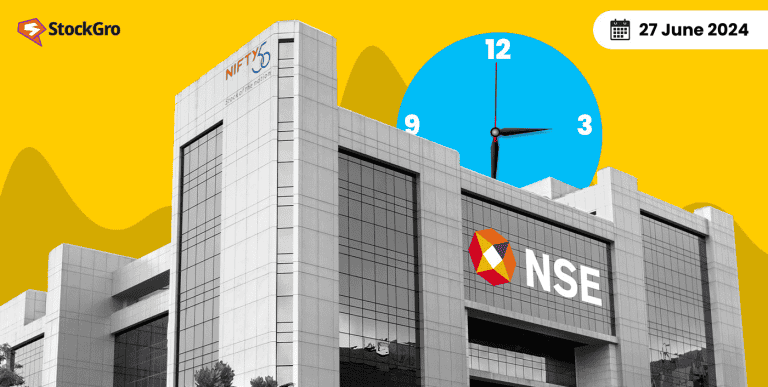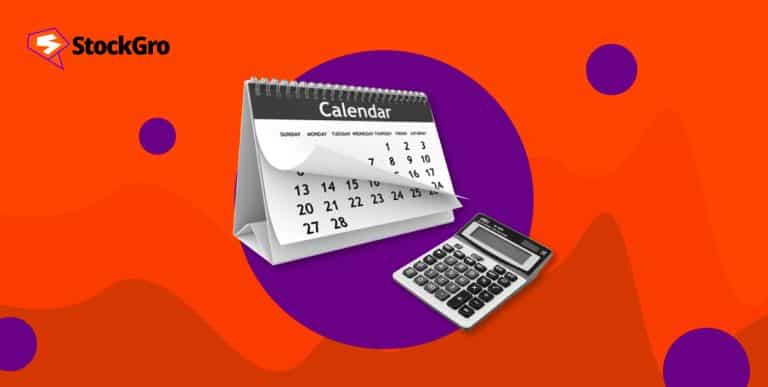Table of contents
Mutual funds represent an investment opportunity that is quite popular wherein the investors pool their financial resources to create a diversified portfolio that professional fund managers manage. Data shows that this industry has a total AUM of ₹58.91 lakh crore as of May 31, 2024. The top 10 mutual fund houses handle most of it, i.e., 78%.
Mutual fund distributors play a crucial role in the industry. They assist investors in connecting with appropriate mutual fund schemes to ensure the investment process is easy and accessible.
The article outlines the essential requirements for becoming a mutual fund distributor, their primary responsibilities, and how they make commissions from sales.

Who is a mutual fund distributor?
Mutual fund distributors are intermediaries in the financial industry who help with the purchase and management of mutual funds. In addition, they are known as mutual fund agents, and their work is to help distribute and sell mutual fund products to retail investors- showing that they are part of the economy.
The Securities Exchange Board of India (SEBI) and the Association of Mutual Funds in India (AMFI) are the two regulatory bodies that supervise mutual fund distributors.
Must read: SEBI’s quasi-powers: Keeping India’s securities market ethical
Responsibilities of a mutual fund distributor
Good mutual fund dealers must use their skills to meet the demands of investors. Mutual fund distributors should first meticulously evaluate an investor’s profile and offer customised investment suggestions to them. It ensures that investors know the appropriate schemes that match their profiles well.
Educating investors about mutual funds: Among other things, different types of mutual funds should be explained to investors by a mutual fund distributor, including their characteristics, advantages and risks. They must indicate what kind of mutual funds they run and direct them on which product(s) would suit them, given that they have personal objectives and financial targets.
Advising investors on their investments: By considering an investor’s risk tolerance, financial objectives, and the duration of investments, mutual fund distributors give personalised advice to clients. Hence, they recommend the right kind of mutual funds.
Facilitating transactions: There should be help given by mutual fund distributors when it comes to buying or selling, among other transactions involving MF units.
Providing ongoing support: Mutual fund distributors should provide continuous direction and progress reports about investments so that decisions can be made on an informed basis.
You may also like: Mutual fund overlap – Meaning and effects
Eligibility of a mutual fund distributor
Minimum age and education: An aspiring candidate must be at least eighteen and have completed a three-year diploma with the tenth or twelfth grade.
Certification requirements: The NISM Series V-A Certification test is mandatory for the aspirants as per SEBI. They can prepare by revising the books on NISM mutual fund exams or reading widely available study materials on NISM mutual fund exams.
Registration and identification: Learners receive an AMFI Registration Number (ARN) to register as a mutual fund distributor upon completing NISM certification. They also receive an Employee Unique Identification Number (EUIN).
As of the time of doing this exam, it is about three years from that point when the NISM certificate will remain valid concerning the date of the mutual fund distributor examination. It is not permitted to hold multiple registration letters or ARNs.
Empanelment with AMCs: Candidates must contact Asset Management Companies (AMCs) for empanelment after getting an ARN. After that, they could do business in promoting and conducting mutual fund distribution with these AMCs.
Code of conduct and de-registration: Mutual fund distributors that are registered should exercise caution, as de-registration could occur if it is determined that they broke the code of conduct, if they are accused of serious offences or if the consumer court upholds a complaint contending gross negligence made against them.
How does a mutual fund distributor earn?
As a payment for their services, a mutual fund distributor receives a commission. It is how it works:
- Upfront commission: The distributor receives an upfront commission when selling mutual fund schemes. The proportion of this fee depends on the investor’s initial investment. The rate varies depending on the specific mutual fund and sometimes on the contract between such a distributor and its Asset Management Company (AMC).
- Trail commission: Besides getting an upfront commission, mutual fund distributors also receive trail commissions. It is a nominal percentage of assets under management (AUM) if it’s held by the investor and paid periodically (usually quarterly) as long as they invest in that fund.
- Expense ratio impact: Thus, commissions are not explicitly charged by distributors but are deducted from the expense ratio of funds. It consists of management fees, distribution charges to intermediaries, and other operating costs. Therefore, these charges usually affect returns rather than being credited directly to distributions.
Mutual fund distributor commission calculator: Through investment amount, type of fund and duration, distributors can use commission calculators to estimate their earnings. It means showing how different commission structures may affect one’s income level.
Bottomline
Mutual fund distributors are critical in ensuring investors can access appropriate investment avenues and receive necessary support while investing in these instruments.
Their involvement not only facilitates individual investors’ achievement at a personal level but also contributes to the overall development plus preservation of stability within all finance markets.
Further reading: Best hybrid funds: A guide to investing in mutual funds
FAQs
An employer receiving a salary may also become a mutual fund distributor. After acquiring the NISM Series V-A Certification, they can begin distributing mutual funds on behalf of Asset Management Companies (AMCs). However, if they want to do this job well and in their interest without any pull away from their employment, they should make sure that everything is clear between their full-time jobs and being a distributor.
A mutual fund advisor’s comprehensive advice can include personalised investment plans, portfolio management, and charges. They become trustees by placing the client’s well-being in the first place. On the other hand, an MF distributor is involved in simply selling MFs and earning commissions on them. Distributors focus more on executing transactions than offering tailored financial guidance and planning.
No, a distributor of mutual funds can not sell direct plans. Direct plans provide room for purchasing Mutual Funds directly from Asset Management Companies (AMCs) without involving intermediaries like distributors or brokers. Therefore, these plans have reduced expense ratios since such distributors would not get commission fees. Investors opting for direct plans must manage their investments independently, without distributor assistance.

